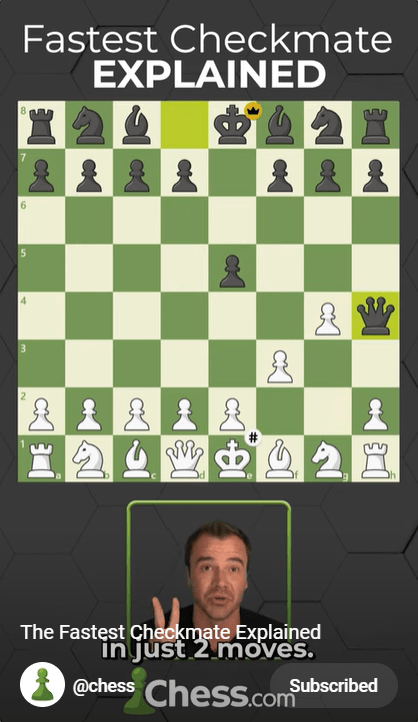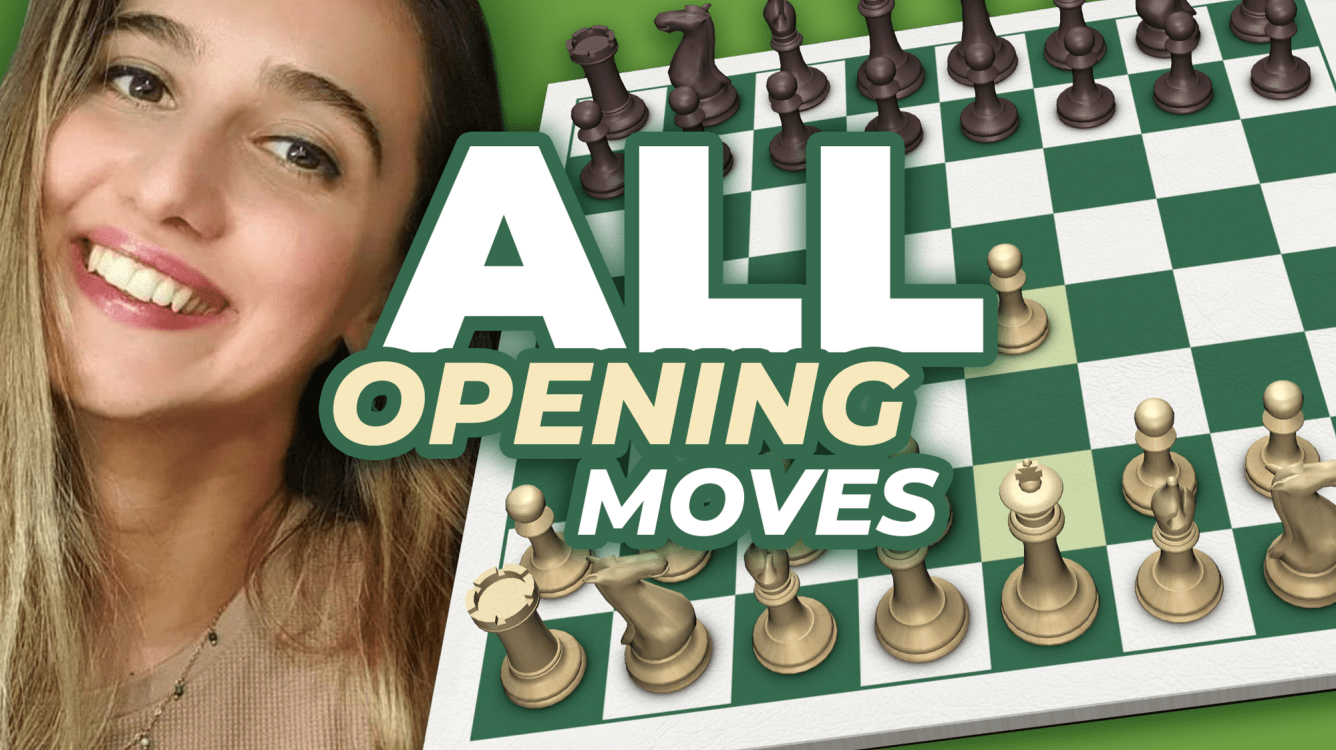
Every First Move Ranked (From Worst To Best)
There are 20 possible first moves in chess: each of the eight pawns can move one or two squares forward, and each of the two knights has two squares it can go to.
But not everything that is equally legal is equally advisable as a course of action. In this article: every opening move, tiered and ranked.
Check out this great video by WGM Keti Tstsalashvili:
- F Tier: "Never, Never Do This"
- D Tier: Knights Making A Wrong Turn
- D+ Tier: "Pass"
- C Tier: The Mouse Slips
- C+ Tier: Maybe Don't
- B Tier: They're Sound, Buuut...
- A Tier: The Good Ones
- S Tier: I'm The Best! No I'm The Best!
"Never, Never Do This"
There's an old Far Side cartoon where a guy has parked his bike at a missile silo and is staring right down an open hatch. The caption: "Never, never do this." These first moves are the chess equivalent.
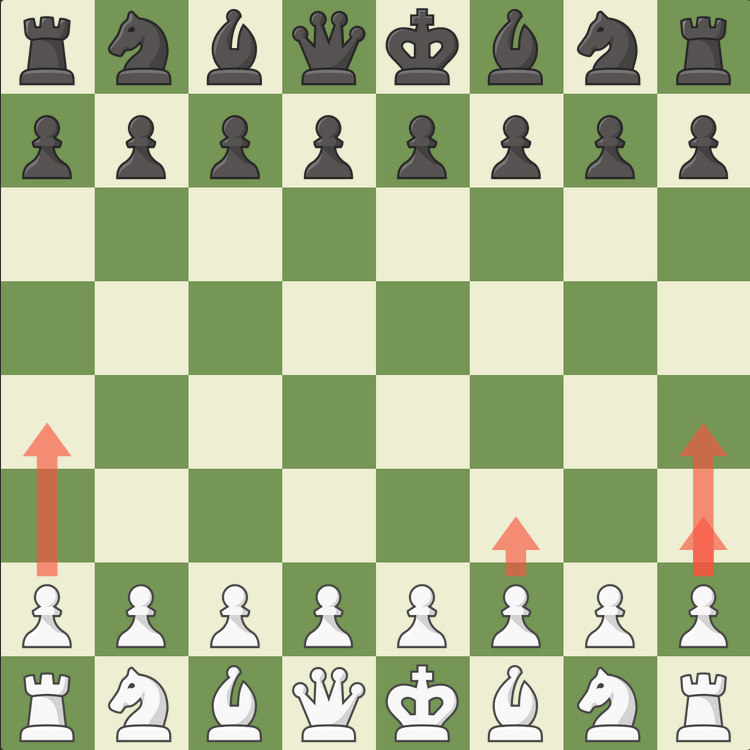
20. f3
It's a good move... if you're trying to explain Fool's Mate to someone.
19. a4
As per The Princess Bride, play this and you've fallen for one of the classic blunders. In this case, the blunder is immediately trying to develop your rook.
18. h4
Mirror, mirror, on the wall... what happens if I try it on the other side? Why, the same thing, of course.
17. h3
Why would you play this move? Are you trying to keep a piece off of g4, even though none can get there yet?
Planning ahead is admirable but there's nothing to be afraid of here. Imagine if Paul Morphy began the most famous game with h3 instead, just to stop Black's bishop from coming to g4.
Knights Making A Wrong Turn
The good news here is you've developed a piece. The bad news is you've played the knight to the edge of the board where it doesn't do very much.
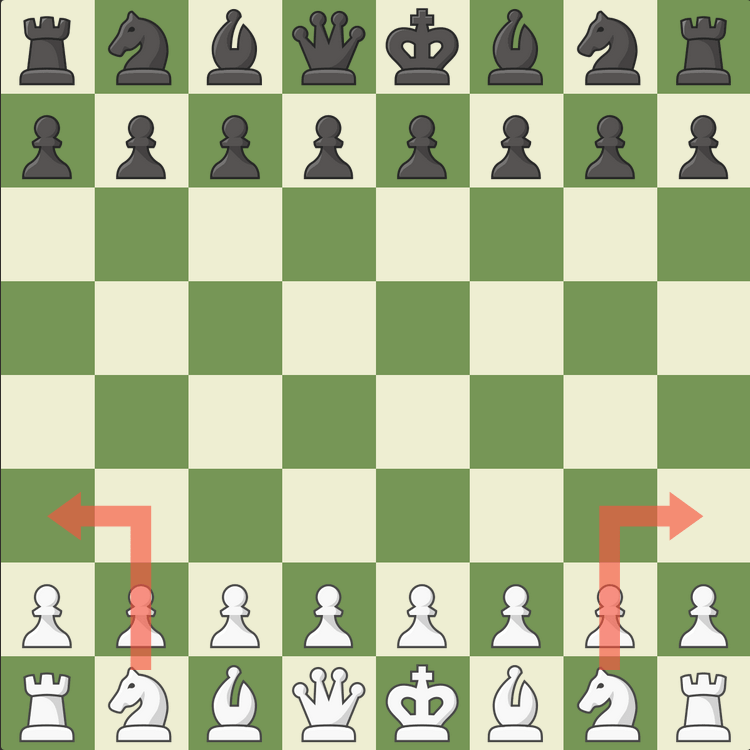
16. Na3
They call this one the Sodium Attack because the "Na" from the notation is also the chemical symbol of sodium (the Latin word was "natrium"). And, as happens with consuming sodium, your blood pressure will go up if you play this move too much.
15. Nh3
The "Nh" in this move, on the other hand, does not have chemical significance, unless you're under the influence of chemicals when you play it.
"Pass"
Do you ever have the white pieces but really want to play as Black? Then there is a move for you!
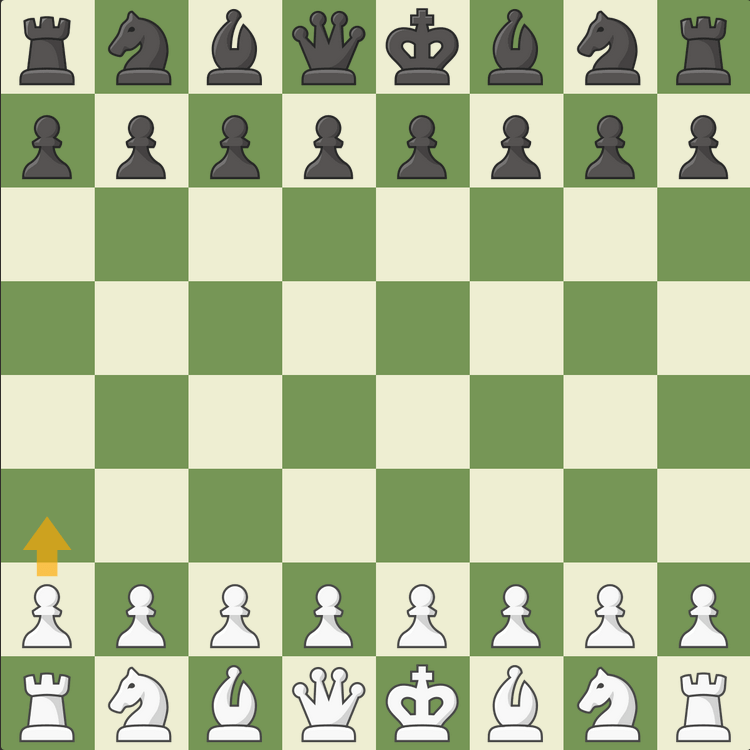
14. a3
It's hard to explain why this move is better than #17. So I won't. Just know that the player for whom it's named, Adolf Anderssen, beat Morphy with it once.
The Mouse Slips
Playing these pawns two squares forward on move one is very common. Playing them a single square? Less so.
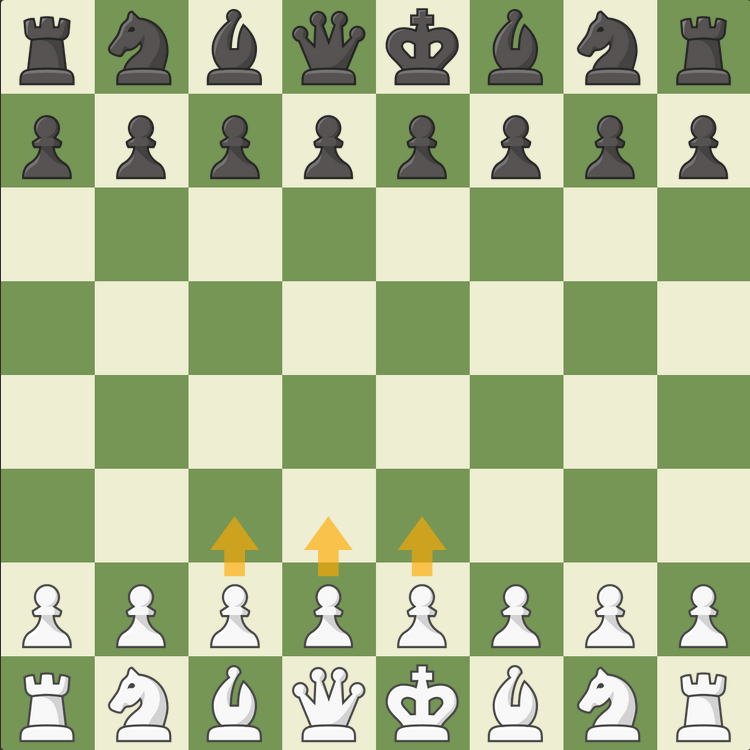
13. c3
Type 1.c3 into Google and I'm pretty sure it will ask, "Did you mean c4?" I haven't tested this hypothesis.
12. e3
I suppose it's good that the hardest opening to pronounce is an obscure one. Imagine having to regularly say the name "Van't Kruijs" in chess conversation.
11. d3
Objectively not much worse than starting with g3 or Nf3, it's just less immediately obvious that you've played chess before when you start with d3.
Maybe Don’t
Unless you know what you're doing, these moves are inadvisable. Even if you do know what you're doing, do you really know what you're doing when you're doing this?
Also, definitely don't play these in a row.
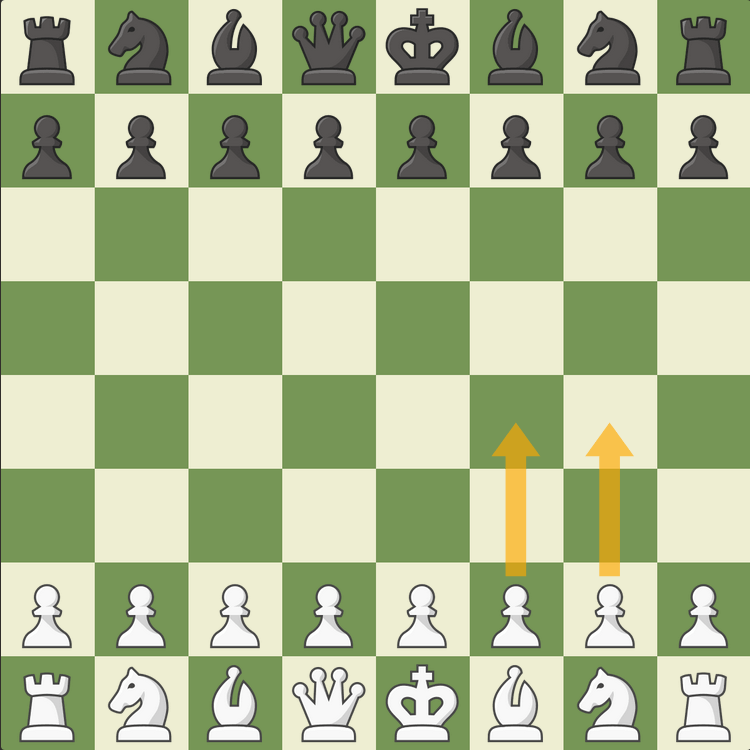
10. g4
Named for Henri Grob, not because the move is Grob-awful, although it is that too. The thing about this move is it can be tricky for Black to handle, but objectively, it belongs even lower on this list.
9. f4
Called the Bird Opening even though it's not even a middle pawn, White can win with this opening, but Stockfish won't be happy at first.
They’re Sound, Buuut…
Your opponent may be slightly confused after these moves, but unless you play them regularly and know all the ins and outs (and what-have-yous), you might also quickly get confused yourself.
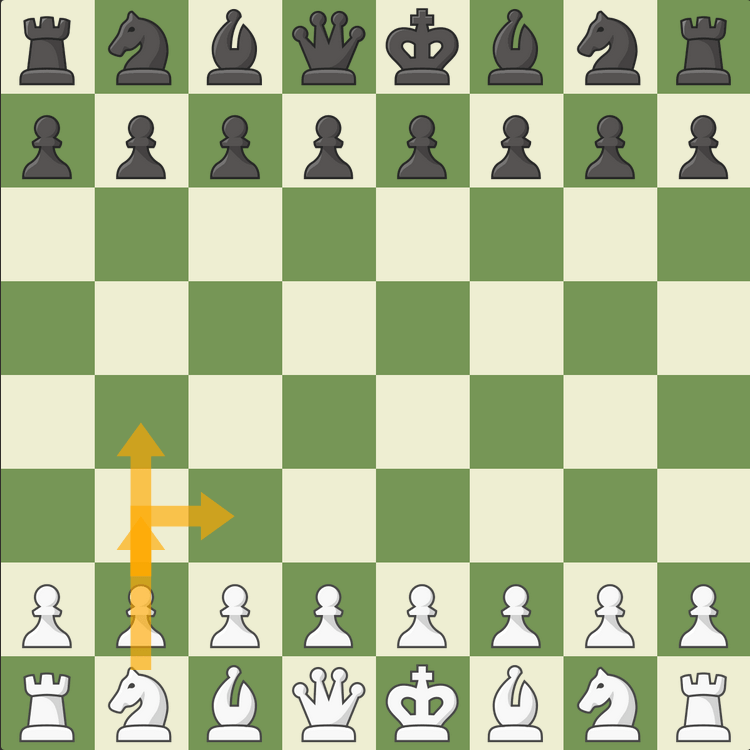
8. Nc3
Whether you call it the van Geet or the Dunst, it's fun to say. Plus it's not as bad as it looks. Still, you'll find better moves.
7. b4
Another move with a fun name: the Orangutan! But you can also call it the Polish Opening if you need to appease people with last names like Wojtaszek or Stapczynski.
6. b3
The Nimzowitsch-Larsen Attack, named after two great Danes—not to be confused with two Great Danes. (Nimzowitsch was Latvian but lived in Denmark after the First War of the Worlds World War.)
Good for bullet because the dark-squared bishop will soon aim at the kingside. Far less good for classical because of games like this:
The Good Ones
Now we're getting somewhere.
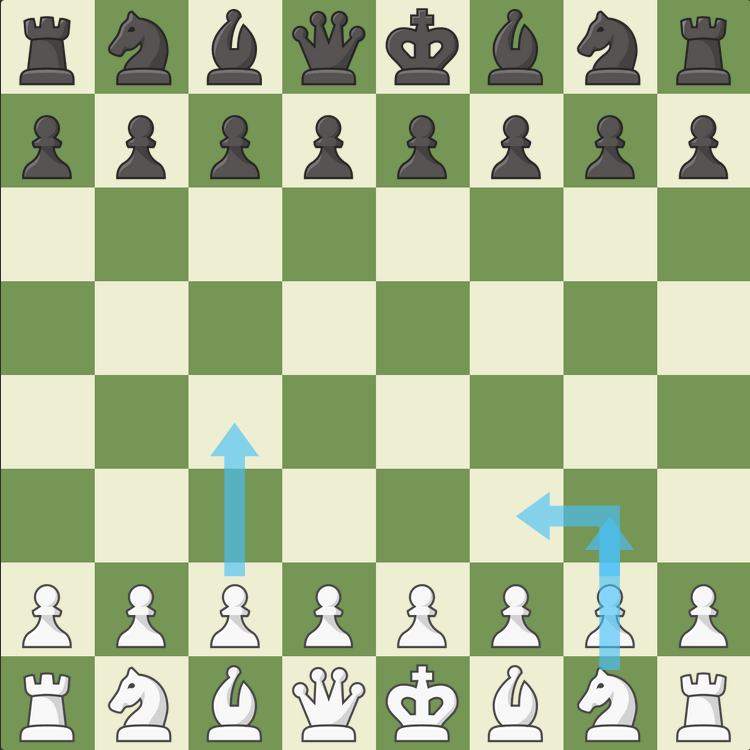
5. g3
Immediately starting the kingside fianchetto now is perfectly good. It's a lot harder to get instantly owned with this than with the mirror b3 move.
4. c4
England fancies itself sophisticated (or at least has that reputation... might we offer you spot of tea?), and few opening moves are as sophisticated as the English Opening, c4.
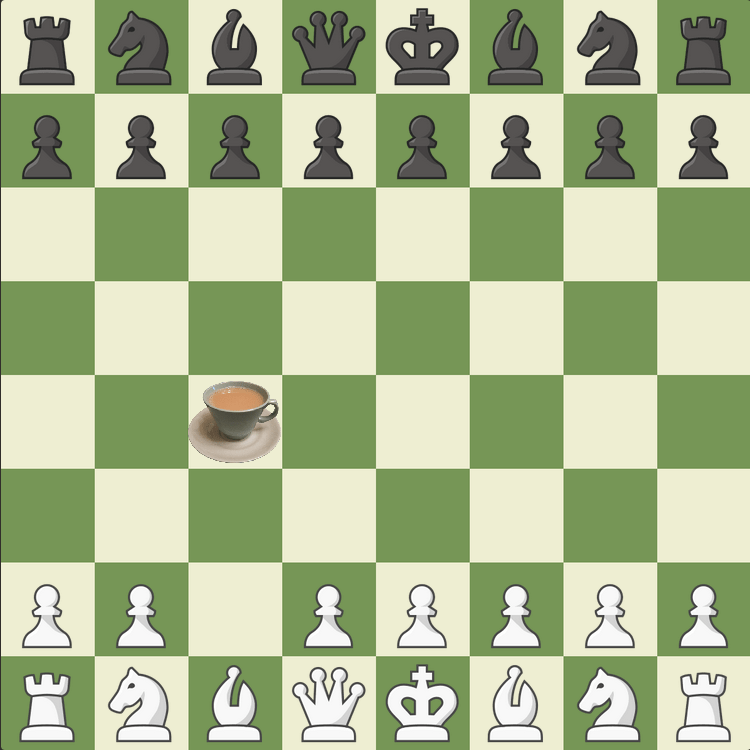
The English attacks d5 and plans to develop the knight behind the pawn. That may seem innocuous, but it's an excellent early-game strategy, at least for intermediate players or higher.
3. Nf3
By far the best opening knight move, because it begins kingside development while centralizing the knight. White has all sorts of legitimate follow-ups regardless of how Black responds, making this the most flexible opening move. Flexible—that's a word chess players like almost as much as gymnasts do.
I’m The Best! No, I’m the Best!
And now we get to these famous step-siblings, although they indicate somewhat more intelligence and poise than some other step-siblings do. But which move is better?
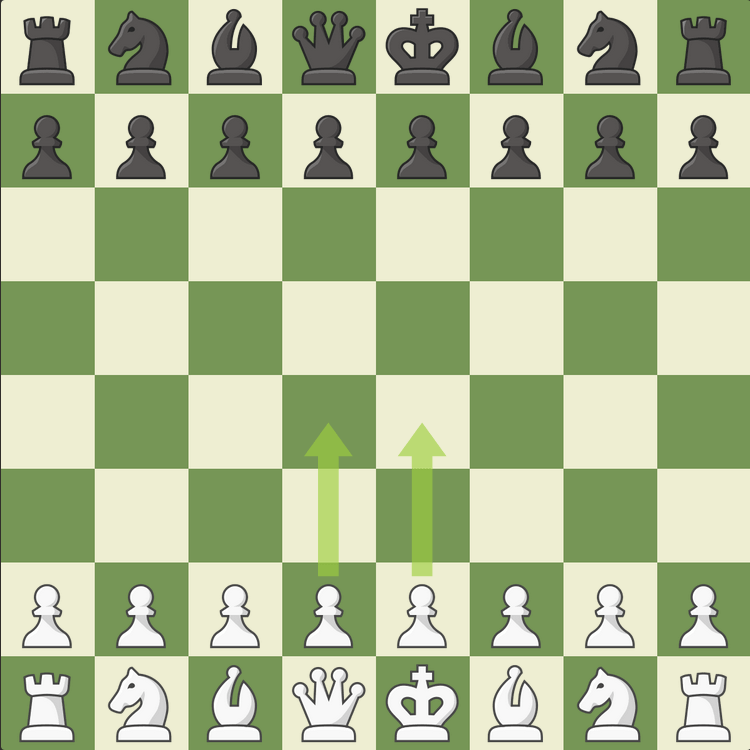
1a. e4
1b. d4
Yep, time for a cop-out. The age-old e4-or-d4 question is truly a matter of preference. If you like games that quickly flame out into boring draws, then e4 is the opening move for you. If you like tense positional struggles that can explode into tactics at any moment, then d4 is the move to play.
Okay, you can tell which one I prefer, but really, the choice is yours. And e4 is easier for beginners to grok. But no matter your level, you truly cannot go wrong in any way by starting the game with either e4 or d4.
What is your favorite opening move? Do you have a move you like that isn't in our top five? Let us know in the comments!
